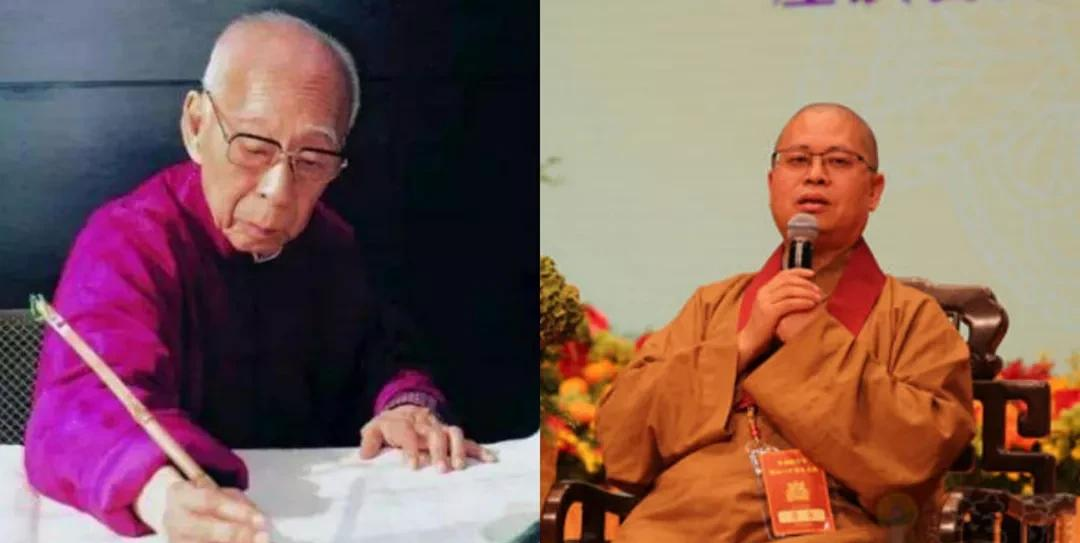Many Buddhists like to use the phrase "self-sufficiency, why ask for it from outside" to "despise" some people who are "more learned and more capable". According to the "Tantra", he often quoted the six ancestors to find the basis for his "laziness in learning".
In fact, whether Master Huineng is illiterate or not is still controversial. Through the research of Professor Rao Zongyi, a well-known scholar at home and abroad, as well as scholars such as Master Jingyin, they came to the conclusion that "The Six Patriarchs are not illiterate, but a person with considerable cultural attainments." ”

It is true that in the Six Ancestral Tantras, Master Huineng did claim that he "did not recognize the words", but this may be just a kind of humility.
Chinese has always been like this, obviously learning to be rich in five cars, but always like to say: "I am just a person who does not learn and has no skills." ”
Mr. Nan Huaijin also laughed at himself: "In my life, I have no strengths and nothing. ”
Master Huineng claimed to be illiterate, perhaps just such a kind of self-effacing.
It doesn't really matter whether the above inferences are true, what matters is whether the "self-sufficiency" is really true, and once enlightened, you understand everything?
And look at what the master of mind, Wang Yangming, said:
The saint knows everything, but only knows a heavenly reason; omnipotent, but can only be a heavenly reason. The saint himself understands that the story knows where the heavenly truth lies, so he goes to fulfill the heavenly truth. It is not after the ontology is clear, but it is known to everything in the world, and it is done. The things under the world, such as the degree of famous things, the grass, trees, birds and beasts, are too much trouble, and the saint must be the essence of understanding, and why can he know it all? But there is no need to know that the saints themselves do not need to seek knowledge; what they should know, the saints themselves can ask people; such as "the son enters the temple, asks everything" and so on.
Wang Yangming said very clearly: Saints mainly know the "essence" and "heavenly truth" in the ming, and they do not really do anything and do everything when they become saints. What should be learned still has to be learned, what should be practiced still has to be practiced, and what should be asked still has to be asked.
Whether a special case like Master Huineng is "true illiterate" or not, we leave it alone. Throughout the ancient and modern sages, almost all of them are "well-educated people".
Confucius, the master of the collection of erudition; Lao Tzu, director of the National Library; Zhuangzi, whose learning is omnipresent; Zhu Xi, the scholar of his time; Wang Yangming, who is proficient in the subset of history; the four great monks represented by Master Shanshan in the Ming Dynasty, and the four great monks represented by Master Xuanyun in modern times, all of whom are rich and five cars.
Look at the contemporary Buddhist celebrities, Sodagyi Khenpo, who studied in both Chinese and Western, Hui Vinaya, who has repeatedly retreated to Tibet; Nan Huaijin, who has been in retreat for three years, and so on.
It is no exaggeration to say that anyone in contemporary times who dares to say that his or her knowledge is not learned, but is all based on "enlightenment", can directly conclude that he is "lying".
When we say this, we do not mean that "enlightenment" must be "knowledgeable." But don't understand "self-sufficiency" as: once enlightened, you will understand everything, you will know everything. Therefore, there is no need to learn, nor to practice, just rely on an empty phrase of "self-sufficiency" to go to the world.
What I just said is only the academic aspect, but once you are enlightened, you can build an airplane? Can you build high-rise buildings? Can you do scientific research? There are no such people in ancient and modern China and abroad, and at best it will help to do better "what will be done".
Of course, according to the descriptions in the Mahayana texts, Buddhas, bodhisattvas, arhats, etc., are all miraculous, boundless in mana, able to know the past and the future, and swim in ten directions.
Logically speaking, such a great power should be like God, omniscient and omnipotent. How could there be no?
Well, for the sake of respecting the Buddhas and Bodhisattvas, I have a respectful attitude toward the "omniscience and omnipotence" after this kind of enlightenment, after all, that kind of "incredible" realm is beyond the imagination of ordinary people like me.
But let me ask you, is enlightenment that simple? It is said that Master Xuanyun was the "Bodhisattva of the Eight Lands" who came back and did what ordinary people did all his life, and endured what ordinary people could not endure until he was fifty-six years old.
In today's "end-of-Life era," people who want to sit and wait for "enlightenment" to have everything "sufficient" have to say that they are the biggest "delusions" and are "those who wait for the rabbit" in their practice.
This is one of the main reasons why many people who study Buddhism become more and more "listless" the more they learn, so that the more they learn, the more "decadent" they become.
If you look at the biographies of senior monks or sages throughout the ages, you will find that whether you enter the world or come out of the world, "down-to-earth" is always correct.